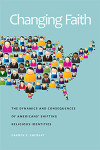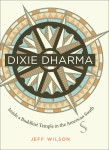This is a letter I wrote to someone dear to me after s/he asked about my faith, with only a little editing. Edits will be inside brackets.
“Hey [person who is dear to me]
Thanks for opening up what I think can be a fruitful dialogue. I’m composing this for you as well as for me so I can put down some thoughts […].
The subject line [‘Subjectivity, Text, Interpretation, Faith’] shows in an abstract way how I think we arrive at faith. Children are not born religious or really anything. The faith that they accumulate or don’t comes from life experience. Subjectivity in my model includes all that goes into making a person: habits, decisions, mistakes, parents, thoughts, relationships, abuse/acceptance, bodies, societies, communities, wars, money, education, livelihood, hobbies, etc. I wouldn’t say any one of these things are necessarily more important than any other [after further reflection, I find some of those elements far more influential than others] in self-formation; selves are an amalgam of things that become more or less stable over time.
We bring all (or sometimes only parts depending on how integrated we are as persons) of ourselves to the texts that we read. Based on our experiences we can reject or accept things in texts rather quickly. At other times there are texts that give one pause, particularly if they are eloquent, beautiful, jarring, peculiar, or any combination of these things. If I read a headline, I bring a political bent, previous thinking, as well as openness to the text at hand. More often than not it goes out of my mind by the next day because of the nature of that genre of text. Texts such as the Bible, which contain rich layers of genre and human interest, I […] give more time to.
When I told you today that I hadn’t really touched a Bible that much in a while, unless for class, [it] is because I have spent a lot of time […] ruminating over various passages. Some of these textual interactions have been with me since I was a boy: humans are special (image of God; even if I am probably more of an agnostic now, this value has continued to develop in me even after I left tradition), we are built for community and owe to our communities (brother’s keeper, not good for [hu]man[s] to be alone; the owing of ourselves to our communities is a more recent development), redemption (not so much in an orthodox understanding, but in a narrative sense, I have experienced redemption after Sarah’s and my relationship became better). Things that have moved me beyond reconciliation with evangelicalism (if one assumes inerrancy an integral part of that label): patriarchy as divinely ordained[…], death penalties for trivial things (blasphemy, sorcery, men having sex with men [note the lack of the same standard for women!- original brackets], Sabbath breaking [technically one is to be cut off from the people, but that’s essentially a death sentence in that context- original brackets]), proclivity to war, authoritarianism, embeddedness in monarchy and empire, the concept of messianism, the injustice of [substitutionary] atonement theory, racism/ethnocentrism, slavery, and choosing ambiguities of faith over certainties of reason (particularly when the two are in conflict).
On interpretation, I see it as organically springing from our persons as described above. We can be trained in various interpretive models–the more traditional ones that involve history, language, syntax, and sociology–or more avant guard [hehe, avant-garde] ones like feminist, queer, post-colonial, ideological/Marxist, reader-response, deconstruction, economic, and African-American (this could probably fit entirely under post-colonial approaches). The more avant guard [again, avant-garde] ones call into question the traditional historical-critical approach that understood there to be one inherent meaning per text. Scholars such as Dale Martin have demonstrated that when two scholars beholden to the same historical-critical methods approached one text, they arrived at diametrically opposed conclusions.
Probably where I fit in interpretation is synthetic. I think we have to make use of the building blocks of history, language, and syntax (kind of the historical-critical school in a nutshell) but texts tend not to just sit there as “fully interpreted” if we stop at “this verb means this in such and such tense when followed by the definite article in Hebrew and when used by the leader of a family household.” If that’s what it meant for such a person, what, if anything, has that to do with me? That question involves what I call the gap. There is a vast chasm between ancient literature and myself, of time, language, and culture. I can fill in some of that, but inevitably I fill in with tools from my training, my community, and my life experience. This is why there’s no such thing as a commentary on the Bible without an author. There simply is no such thing as a biblical interpretation without human subjectivity involved. At all. Some are uncomfortable with this. When I came to this realization, it was preposterously disconcerting, especially since I was raised with the idea that the Bible is the only authoritative rule for faith and practice. If that’s the case, we’re screwed. Tons of traditions agree on the idea of inerrancy, but then claim that they have the right interpretation in the bag, regardless of how much diversity of opinion there ends up being.
If God/Jesus/Spirit ruled as a physical personage, we would know who the right and wrong were, for then they could settle the dispute! They’re [the trinity] conspicuously silent when I really need them to come through. We could have real loyalists and real rebels. As we have it, we have a lot of people grasping at straws about the unseen and then holding people accountable based on that unseen thing that some apparently have access to[,] but [which] I don’t to corroborate it. I get along quite well with people even if they accept this. It gets hard when it gets political[,] though [,] for then the innocuous belief becomes a concrete political option that makes or breaks communities.
From my religious studies training, I was exposed to the debate between idealism and materialism. All religions have elements of both: you’d call one theology and one ethics, or the immaterial and material. Because of where I’m at, I focus on the material. If the Bible says, “If a man lays with a man as with a woman, that is an abomination,” (it says something similar to this in Leviticus; I’m just going from memory) and in the other form of that passage it adds the death penalty, I’m going to stop and think a bit before I do something [about the] concrete passage. Even if we account for genre and time, that is still present in the inerrant text. If two men happen to pork each other, and they aren’t doing it in public or to children, I see no reason why they should be stoned, particularly since passages like this one give no reason for the ruling other than “God said” or a sacred text said so. Such arguments from authority simply don’t do anything for me anymore. If there is not a rational basis and God is perfect, that [text] couldn’t have been spoken by God, for then it would be associating irrationality or tyranny with God.
This is getting long. Suffice it to say, I have access to God/Jesus/Spirit solely through a text and the person of Monte I bring to that text. The ONLY thing that would change that would be if they were to speak for themselves. Short of that, we are all gods […] since we end up being the final arbiter of which texts we find authoritative and which ones we don’t.
Love you. Thanks for speaking with me about this and for letting me speak candidly with you.
Even though some of the statements above are put pretty bluntly, or maybe as if I am hardened to change, that is not the case. I am open to dialogue. Challenge me on things. Question me. Ask what my narrative has to do with my interpretation. Ask for clarification. Provide difference of opinion. And defend it.
Again, love you
Mont”


























